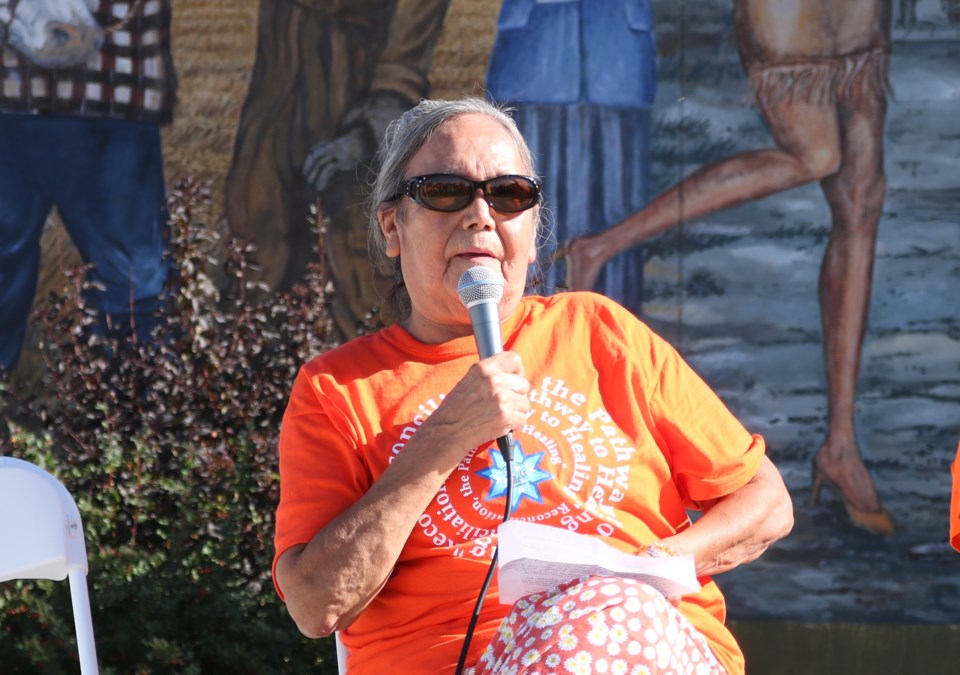“I never liked to share my story because I ended up crying,” explained Norah Wasacase, one of the speakers Thursday at the National Day of Truth and Reconciliation event in Yorkton.
But she has learned to tell the story.
“Now I can share my story without tears,” she said.
For Wasacase the impact of residential schools was not direct, but rather coming at home.
“I was not abused in residential school,” she said, although she did talk to those “physically abused by staff.”
It was a case of living in fear.
“It always looked like a normal place to live, but you never knew what happened behind them closed doors,” said Wasacase.
Moving to the residential school in Dauphin at age 14, Wasacase did find something of a refuge though.
“I loved that life. I loved that school. I loved learning,” she said. “I was making new friends . . .I don’t have a sad story to tell about residential school.”
The school also got her away from home.
“I didn’t miss the abuse of my mother,” she said.
Both of Wasacase’s parents had attended residential school, yet the impact on the two was different.
“My father was the most loving supportive person in my life,” said Wasacase.
It was a different story with her mother.
“She abused two of the girls in my family (including her). She beat us up when she went into a rage. She beat us up every time she got mad,” said Wasacase.
It was not unusual for Wasacase and a younger sister to be thrown to the floor by their mother and kicked repeatedly.
Another time Wasacase’s mother tore of her dress and pushed her out into the street half naked.
One time Wasacase went to the cellar for coal oil, and as she put her hand on the edge of the floor to climb out her mother closed the door on her fingers and stomped on the door.
“I’d share all the examples of what she did to abuse me, but we’d be here all day,” she said.
Looking back now Wasacase suspects her mother experienced a harder time at residential school.
“I think my mother was abused in the school she attended,” offered Wasacase, but added “she never talked about her experiences. I never will know my mother’s true story.”
And the abuse of the mother was bestowed on Wasacase’s sister, who abused alcohol, had four children with four different fathers, and died at age 56.
“The abuse she went through, I felt part of it was my fault too because I didn’t help her,” said Wasacase.
But, years later Wasacase is coming to terms with the hurt.
“The more I tell about it, the more I feel like I’m healing,” she said.







